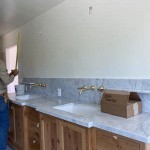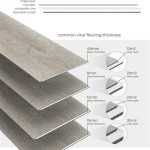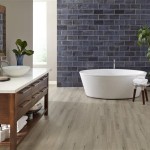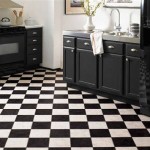```html
Tile Flooring in Las Cruces, NM: A Comprehensive Guide
Tile flooring remains a popular choice for homeowners and businesses in Las Cruces, New Mexico, due to its durability, versatility, and aesthetic appeal. The arid climate and sandy soil prevalent in the region make tile a practical and long-lasting option compared to other flooring materials. This article provides a comprehensive overview of tile flooring options available in Las Cruces, covering various tile types, installation considerations, maintenance requirements, and factors to consider when selecting a professional installer.
Types of Tile Flooring Commonly Used in Las Cruces
The selection of tile flooring available in Las Cruces is extensive, catering to diverse budgets and design preferences. Understanding the characteristics of each tile type is crucial for making an informed decision.
Ceramic Tile: Ceramic tile is a widely used option due to its affordability and versatility. It is manufactured from clay that is kiln-fired and often glazed for protection and aesthetic appeal. Ceramic tiles are available in a vast range of colors, patterns, textures, and sizes. They are suitable for various applications, including floors, walls, and backsplashes. However, standard ceramic tile tends to be less dense and more porous than other tile types, making it more susceptible to staining and chipping, particularly in high-traffic areas. It's crucial to choose a ceramic tile with a suitable PEI (Porcelain Enamel Institute) rating for the intended application.
Porcelain Tile: Porcelain tile is a denser and more durable version of ceramic tile. It is fired at higher temperatures, resulting in a lower water absorption rate. This reduced porosity makes porcelain tile highly resistant to stains, scratches, and moisture damage. Porcelain tiles are ideal for areas prone to water exposure, such as bathrooms, kitchens, and patios. They are also well-suited for high-traffic zones due to their exceptional durability. Porcelain tiles can mimic the appearance of natural stone, wood, and other materials, offering a wide range of design possibilities. Furthermore, porcelain tile is available in both glazed and unglazed finishes, offering even more design flexibility. Unglazed porcelain is often referred to as "through-body" porcelain because the color and pattern extend throughout the entire tile, making chips and scratches less noticeable.
Natural Stone Tile: Natural stone tiles, including granite, marble, slate, travertine, and limestone, offer a unique and luxurious aesthetic. Each stone tile possesses natural variations in color, pattern, and texture, creating one-of-a-kind installations. Natural stone tiles are highly durable and can add significant value to a property. However, they are generally more expensive than ceramic or porcelain tile and require specific maintenance procedures. Many natural stones are porous and require sealing to prevent staining and water damage. The selection of a suitable sealant is critical, as some sealants can alter the appearance of the stone. Regular cleaning with pH-neutral cleaners is also essential to preserve the stone's natural beauty.
Glass Tile: Glass tile offers a sleek and modern look, adding a touch of elegance to any space. It is available in various colors, shapes, and sizes, ranging from small mosaics to large format panels. Glass tile is non-porous and easy to clean, making it a practical choice for backsplashes and accent walls. However, glass tile is less durable than ceramic or porcelain tile and may not be suitable for high-traffic flooring applications. The reflective surface of glass tile can also be slippery when wet, requiring careful consideration in areas prone to moisture.
Quarry Tile: Quarry tile is a type of unglazed tile made from natural clay and minerals. It is known for its exceptional durability, slip resistance, and resistance to chemicals. Quarry tile is commonly used in commercial kitchens, restaurants, and industrial settings. While less common in residential applications, it can be a suitable choice for mudrooms, entryways, and other areas requiring a robust and slip-resistant flooring surface.
Installation Considerations for Tile Flooring in Las Cruces
Proper installation is paramount to the long-term performance and aesthetic appeal of tile flooring. Factors to consider during the installation process include subfloor preparation, adhesive selection, grout selection, and expansion joints.
Subfloor Preparation: A stable and level subfloor is essential for a successful tile installation. The subfloor must be clean, dry, and free of any loose debris. Concrete subfloors should be thoroughly cleaned and leveled using a self-leveling compound if necessary. Wood subfloors should be inspected for signs of damage or rot and repaired or replaced as needed. In some cases, a layer of cement backer board may be required to provide a stable and waterproof substrate for the tile. The type of subfloor and the type of tile being installed will dictate the necessary preparation steps.
Adhesive Selection: Choosing the correct adhesive, also known as thin-set mortar, is crucial for ensuring a strong and lasting bond between the tile and the subfloor. Different types of thin-set mortar are formulated for specific tile types and applications. For example, large format tiles often require a modified thin-set mortar to prevent lippage (uneven tile edges). Natural stone tiles may require a white thin-set mortar to prevent discoloration. The manufacturer's recommendations for the specific tile being installed should always be followed.
Grout Selection: Grout fills the gaps between the tiles, providing structural support and preventing water penetration. Grout comes in various colors and types, including sanded grout, unsanded grout, and epoxy grout. Sanded grout is typically used for wider grout lines, while unsanded grout is suitable for narrower grout lines and polished tile surfaces. Epoxy grout is highly resistant to stains, chemicals, and water damage, making it ideal for demanding applications such as showers and countertops. Grout should be sealed after installation to protect it from staining and discoloration.
Expansion Joints: Expansion joints are essential for accommodating the natural expansion and contraction of tile flooring due to temperature and humidity fluctuations. These joints are typically filled with a flexible sealant and placed at regular intervals throughout the installation, particularly around the perimeter of the room and in areas where the flooring meets walls or other fixed structures. Neglecting to install expansion joints can lead to cracking or buckling of the tile flooring.
Maintenance and Care of Tile Flooring in Las Cruces
Proper maintenance is essential for preserving the beauty and longevity of tile flooring. Regular cleaning and preventative measures can help prevent staining, scratching, and other types of damage.
Regular Cleaning: Routine cleaning with a mild soap and water solution is sufficient for most tile types. Avoid using harsh chemicals or abrasive cleaners, as they can damage the tile surface or grout. For stubborn stains, a specialized tile cleaner may be necessary. It is important to thoroughly rinse the tile after cleaning to remove any soap residue, which can attract dirt.
Grout Cleaning and Sealing: Grout is porous and susceptible to staining and discoloration. Regular cleaning with a grout brush and a grout cleaner can help prevent the buildup of dirt and grime. Grout should be sealed periodically to protect it from staining and water damage. Reapplying grout sealant every one to two years is generally recommended.
Preventing Scratches and Damage: Place mats at entryways to trap dirt and debris that can scratch the tile surface. Use furniture pads under the legs of chairs and tables to prevent scratches and dents. Avoid dropping heavy objects on the tile flooring, as this can cause cracking or chipping. Promptly clean up spills to prevent staining.
Addressing Specific Issues: Efflorescence, a white powdery deposit that can appear on the surface of tile, is caused by mineral salts migrating to the surface. It can be removed with a specialized efflorescence cleaner. Cracked or chipped tiles should be replaced promptly to prevent water damage and further deterioration. Professional tile repair services are available in Las Cruces to address more complex issues.
Choosing a tile flooring installer in Las Cruces requires careful consideration. Checking reviews, references, and ensuring they are licensed and insured are vital steps. In the arid climate of Las Cruces, proper installation and maintenance are key to preserving tile flooring and its aesthetic for years to come.
```
Floor City Las Cruces New Mexico Wholesale Flooring Store

Floor City Las Cruces New Mexico Wholesale Flooring Store

Daltile Locations In Las Cruces New Mexico Tile Stone Wall And Flooring

Mesilla Valley Design Center Las Cruces Nm 88005 Tile Stone Showroom

Premium Flooring Solutions In Las Cruces A R Home Products

Floor City Las Cruces New Mexico Wholesale Flooring Store

Floor City Las Cruces New Mexico Wholesale Flooring Store

Hacienda Carpet And Tile Las Cruces Nm 88001 Stone Showroom

Guaymas Tile And Landscaping Updated July 2025 11 Photos Las Cruces New Mexico Flooring Phone Number Yelp

Tile Flooring Stores In Las Cruces Nm







